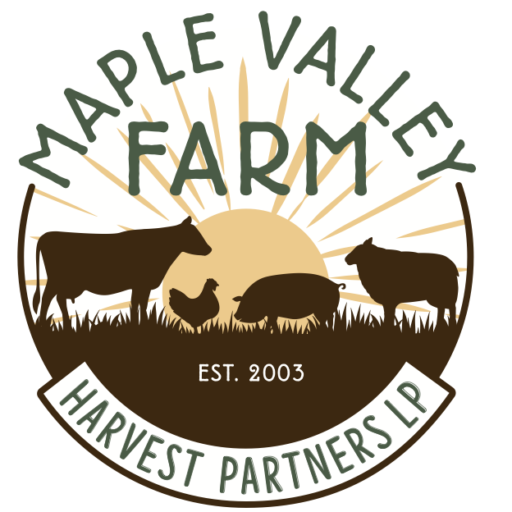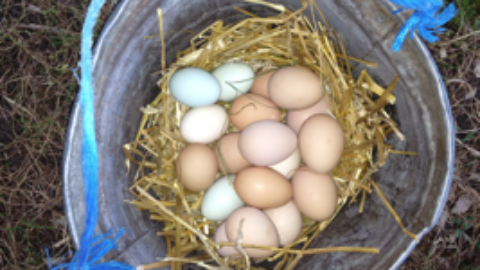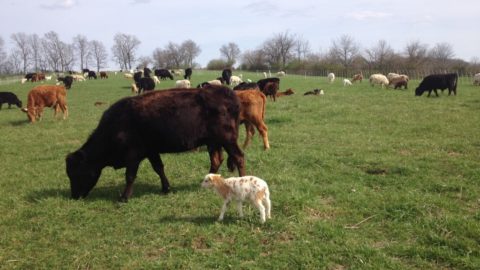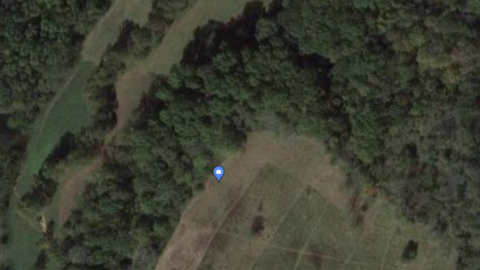Imagine yourself blindfolded. Now imagine that you must hold your mouth wide open while complete strangers put presumably edible things into your mouth. Would you be comfortable with that? My guess is that most of us would find it to be an uncomfortable experience. Yet how many times per week– or day– do we ingest things that were grown, produced or prepared by people we’ve never seen or met?
Let’s face it. Humans have been eating things created by strangers, sometimes far-away strangers, for millennia. The spice trade comes to mind. I certainly won’t argue that you can, or should, completely eliminate all such “anonymous” eating. Nonetheless, the percentage of our modern diet fed to us by strangers, near and far, is at an historical high. We do it all the time, so it’s no big deal right? Wrong. Changing this one thing, even a little, can have a tremendous effect.
The opposite of anonymous eating is consuming food that is produced and prepared by someone you know. Here are ten reasons you should avoid anonymous eating whenever possible.
1. Anonymous eating promotes atrocious animal husbandry. Space does not permit a full description of the horrific conditions animals face on a daily basis in our industrialized food system. Here are just a few examples:
- laying chickens crammed 8 to a cage with about an 8 inch x 8 inch space per bird
- mother hogs confined in an area that doesn’t permit them to go forward, backward or lie down, ever.
- beef cattle “finished” in feed lots with a diet of grain that acidifies their gut, requiring daily antibiotic use and resulting in knee-high manure where the cows stand
- dairy cattle confined in “free-standing” barns where they stand on concrete (and a runny manure sludge) or lie on a rubber-coated “water mattress” 24-7. The cows get no sunlight or fresh grass, hence the need to feed antibiotics as part of their diet, cook the milk to eliminate pathogens and add synthetic vitamin D (real milk from cows in the sun has plenty of it.)
Then there’s the terrible toll this system takes on the animals via epidemic disease. Some animals die from the disease itself, but the majority are “euthanized” or “put-down” in order to prevent a pandemic. Just last year over 400,000 poultry in Indiana were killed in ONE MONTH (February) due to outbreaks of avian influenza. The totals for the year are likely in the millions. An untold number of these were killed in a process called “ventilation shutdown” in which the temperature in the barn is allowed to climb to 104 degrees resulting in heat stroke and suffocation (See here for details.) The remainder were drowned / suffocated by pumping foam into their houses.
Pigs are another example. We’ve been having (largely unreported) epidemics of Porcine Diarrhea Epidemic (PDE) in which tens of thousands of baby piglets are sickened with diarrhea. The solution? Well, there’s no vaccine that we can inject them with yet. So, sick piglets are being ground up and fed back to pregnant mother pigs in a process euphemistically labeled “feedback.” Stephen King couldn’t come up with this stuff.
2. Anonymous eating destroys the soil. As Thomas Jefferson rightly pointed out, ““While the farmer holds the title to the land, actually it belongs to all the people because civilization itself rests upon the soil.” Our soil is being rapidly destroyed in two ways: nutrient depletion and erosion and oxidation.
First, soil nutrient depletion — There’s little incentive for industrial food producers to encourage the healthy soil that leads to nutrient-dense food. As long as a carrot looks (pretty much) like a carrot, who cares (or knows), right? An article in Scientific American explains:
analysis of nutrient data from 1975 to 1997 found that average calcium levels in 12 fresh vegetables dropped 27 percent; iron levels 37 percent; vitamin A levels 21 percent, and vitamin C levels 30 percent. A similar study of British nutrient data from 1930 to 1980, published in the British Food Journal, found that in 20 vegetables the average calcium content had declined 19 percent; iron 22 percent; and potassium 14 percent. Yet another study concluded that one would have to eat eight oranges today to derive the same amount of Vitamin A as our grandparents would have gotten from one.
Also, animals raised on feed with depleted minerals and nutrients will produce substandard meat and eggs. Laboratory testing of pasture-raised eggs showed they have as much as seven times the key nutrients as store bought eggs. Grass-fed beef has an omega 6 (pro-inflammatory, pro-fat storage) versus omega 3 (anti-inflammatory, pro-fat usage) fatty acid ratio of just 2 to 1 while conventionally grain-finished beef has a ratio of 21 to 1 or higher.
Second, soil erosion and oxidation — Every spring we all drive by swollen, mud-filled streams without much thought. That mud is soil from our local farms and pastures, making its way to the ocean. And the soil that remains is often exposed directly to the atmosphere through tillage and bare fields, leading to loss of organic matter through oxidation. Oxidation removes carbon from the soil while increasing carbon dioxide–a greenhouse gas–in the atmosphere. According to one online source:
US farmers lose 1″ (37,000 tonnes/ km2) of topsoil every 8-10 years on average – ten times the natural rate of soil creation under agricultural conditions ((81W1) – quoting D. Pimentel). The USDA contends that US soil erosion is causing a steady drop in land productivity equivalent to the loss of 1.26 million acres/ year (81W1).
Anonymous eating contributes to soil degradation and destruction, but eating meat, milk and vegetables that are produced holistically by people you know, is healing the soil, making more nutrient dense food and sequestering soil organic matter (including tons of carbon.) See here, here, here and here.
3. Anonymous eating reduces food safety. The U.S. Centers for Disease Control estimates 48 million people get sick, 128,000 are hospitalized, and 3,000 die from food-borne diseases each year in the United States. A less-centralized, distributed food system is a more resilient food system in terms of food safety.
Recently, the Indiana Legislature passed a law banning on-farm processed chicken from being sold in restaurants. Proponents argued that people expect the food they eat in restaurants to be inspected. Fair enough. But how many people know that the USDA recently allowed an increase in the poultry processing rates from 450 birds per minute to 750? That’s right, who do you think is doing a better inspection of the chicken? The farmer who’s processing chickens at the rate of less than .0002% of the number of birds in a USDA plant and the chef who’s purchasing that chicken from the farm or a USDA employee watching birds go by on a conveyor at 750 birds per minute? Add to this that the largest confinement barns for poultry are now forced into a one-year hiatus every four years just to clear pathogenicity and you can see the fragility of this system. The best food inspection is the inspection you do yourself!
4. Anonymous eating discourages you from controlling the distance your food has travelled. According to various estimates, the average meal travels about 1500 miles before Americans eat it. The truth is, most people have no idea where the food they eat comes from or how many miles it travelled before hitting their plates. And because anonymous food is so interchangeable, it makes little sense to bother with finding out. Eating food made by people we know tends to keep our food spending closer to home — often much closer. When you spend your food dollars locally, your money is more likely to stay in the local community longer and multiplies economic benefits by up to four times. (See this link for an explanation).
Note that in our family, not all of our trusted food suppliers are local. We still get our olive oil from California. However, because of our beliefs about anonymous food, we’ve spent some time researching the specific farmers who grow our olives and squeeze our oil. They run a natural operation and range turkeys and small ruminants under the trees in a pasture-based system and they’re passionate about improving the soil through their practices. Do you see how eating non-anonymously allows you to have better control over the percentage of your food budget spent locally?
5. Anonymous eating contributes to a system in which farmers receive less than 12 cents of every dollar spent on food. Eating food grown, produced and prepared by people you know is likely to return a much higher percentage of your dollar to the people responsible for making it. This “positive feedback” incentivizes higher quality in the food, better care for the environment and re-investment in the food production model — an upward spiral of goodness. To the contrary, anonymous eating promotes a downward spiral toward lower quality, reduced stewardship and parasitic cost-cutting — all hallmarks of our current anonymous food system.
6. Anonymous eating encourages poor worker conditions. Food journalist Joanna Blythman, who has visited many factory food processing facilities, described them like this in a recent Acres Magazine article:
They’re all huge, windowless sheds — industrial estates with security fencing and security guards. Almost all of the workers in these factories here are people who have emigrated here from abroad and are trying to get a start in the labor market. They’re just desperate to take any job they can because the locals never want to work there due to the reputation of what it’s like inside. The conditions are absolutely appalling — extreme levels of noise, freezing cold temperatures or unpleasantly hot. There is no way to work in a sociable, collaborative way with other people because the place is just too noisy and alienating — long shifts with short breaks, pretty much minimum pay. It would only be a job that you take out of desperation.
In short, employers aren’t as motivated to provide good working conditions when the public at large never sees or knows the workers and their work environment.
7. Anonymous eating encourages willful ignorance. Ever heard that expression “it’s like watching the sausage getting made?” It refers to the idea that we purposely avoid watching the sausage-making process because, if we could see it, we’d be less inclined to eat the sausage! The presumption is that we’d be really grossed out if we saw what went into the sausage and how it was handled. It turns out that eating anonymously is a bit like eating this idiomatic “sausage.” If we could only see how the food we eat anonymously is grown, processed and prepared, we might not like what we see — at all. (see page 4 here for another first person description from Joanna Blythman.) The good news is that eating food from people we know and trust enables and encourages us to look in on the process from time to time. And, while it’s still true that sausage-making (or chicken butchering) may not be the most appetizing thing to watch, it should not leave us turning up our noses at the food we eat.
8. Anonymous eating encourages you to spend a smaller percentage of your income on food. “Whoa now!” you say. “What’s wrong with spending less for my food?” Sure, we should be good financial stewards of our wealth. But there’s truth in that old adage, “you get what you pay for.” The food you purchase from people you know and trust is likely going to be more expensive for several reasons. Space requires that we cover that topic fully in another article. Nonetheless, one of the reasons is that the ingredients (or, in general terms, the “inputs”) used to grow, produce and prepare your food are more expensive than those used in the anonymous system. Not the least of these inputs is the labor and management that is used to produce food for people with names and faces — you! Think about it. Are humans more likely to do a good, thorough, safe and exemplary job for nameless, faceless people in some far-away, unknown place, or for people whom they look in the eye regularly in order to serve up the goods? Spending a larger percentage of your income on something as life-giving, healing, gratifying, satisfying and socially uplifting as food is a worthwhile pursuit!
9. Anonymous eating encourages you to eat alone. When a person views food as merely “fuel” for energizing the machine that is the body, who cares about the process of getting it inside? On the other hand, when eating is looked upon as a communal act of fellowship among humans and with nature at large, as I believe it is, eating alone is to be avoided. Famous agrarian Wendell Barry puts it this way:
To live, we must daily break the body and shed the blood of Creation. When we do this knowingly, lovingly, skillfully, reverently, it is a sacrament. When we do it ignorantly, greedily, clumsily, destructively, it is a desecration. In such desecration we condemn ourselves to spiritual and moral loneliness, and others to want.
To eat is still something more than to maintain bodily functions. People may not understand what that ‘something more’ is, but they nonetheless desire to celebrate it. They are still hungry and thirsty for sacramental life.
Norman Wirzba of Duke Universtity shares in his book Food and Faith : A Theology of Eating:
We could try to imagine all creatures as self-subsisting, non-eating entities that never take a bite, and thus presumably avoid the realities of eating death. But then we would also have to envision a tasteless and lonely world without belonging and fellowship, a world without the varied delights that accompany the procuring, preparing, and sharing of food. Eating joins people to each other, to other creatures and the world, and to God through forms of “natural communion” too complex to fathom.
Eating food grown and prepared by people we know among people we love is special and to be valued.
10. Anonymous eating makes you fat and sick. It would take books to document this, and there are many, so I’ll cop out and just remind everyone that our society, despite amazing advances in technology, still faces a growing tsunami of chronic disease, including cancer, heart disease, diabetes, gut illnesses and mental health issues (related to gut illnesses, by the way.) Eating food produced, processed and / or prepared by people you know puts you in greater control of what you eat and gives you a mindset of active participation in your diet as opposed to being a passive “consumer” of mass-produced products. And taking control of your diet is one especially powerful deterrent to chronic illness.
In short, making just one change — to eating food that is grown, processed and prepared by people you personally know — has the power to transform your life and the food system as we know it. Not everyone can make such a revolutionary change overnight, but we can all use our amount of anonymous eating as a yardstick to measure our progress.
Please feel free to share this article with friends and post comments or questions. Do you have any additions to this list? We sincerely wish you a happy Thanksgiving and upcoming new year!



